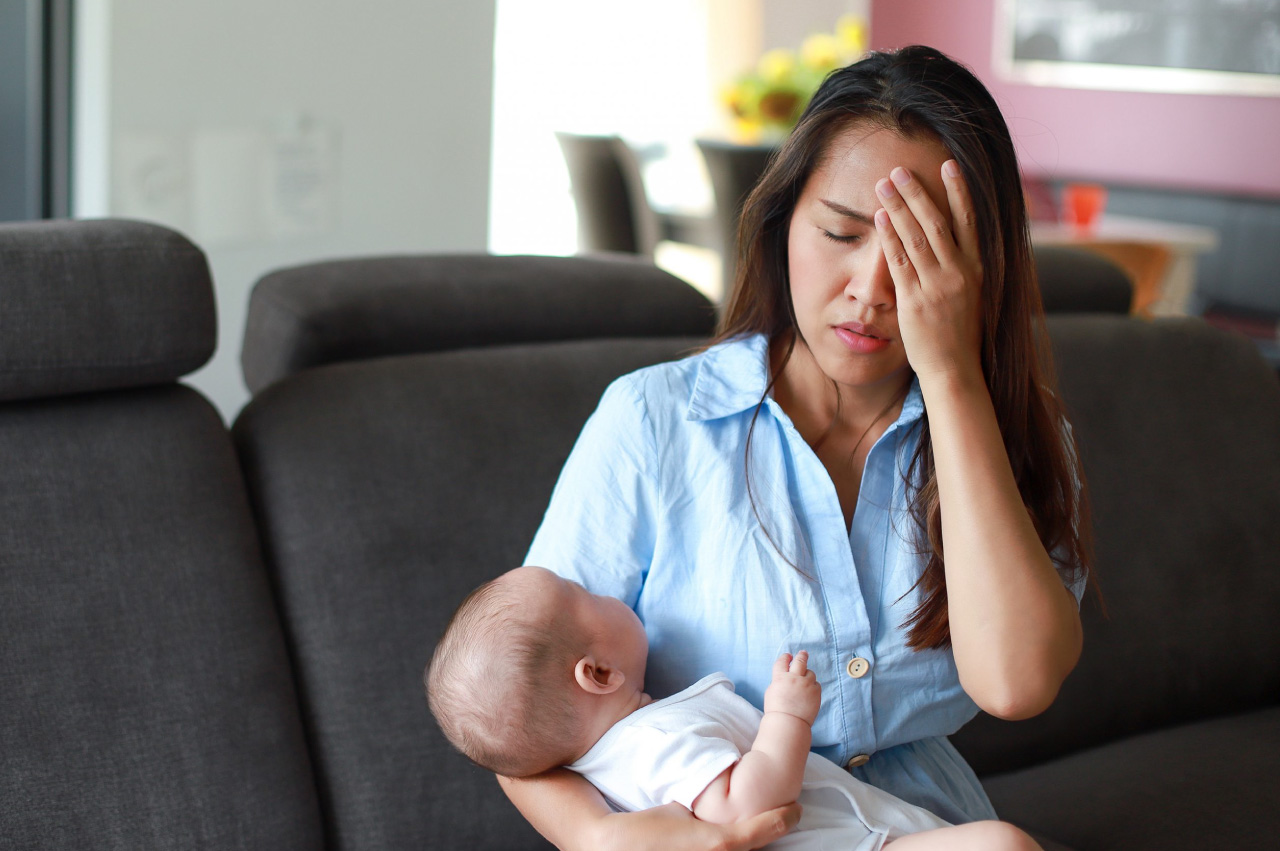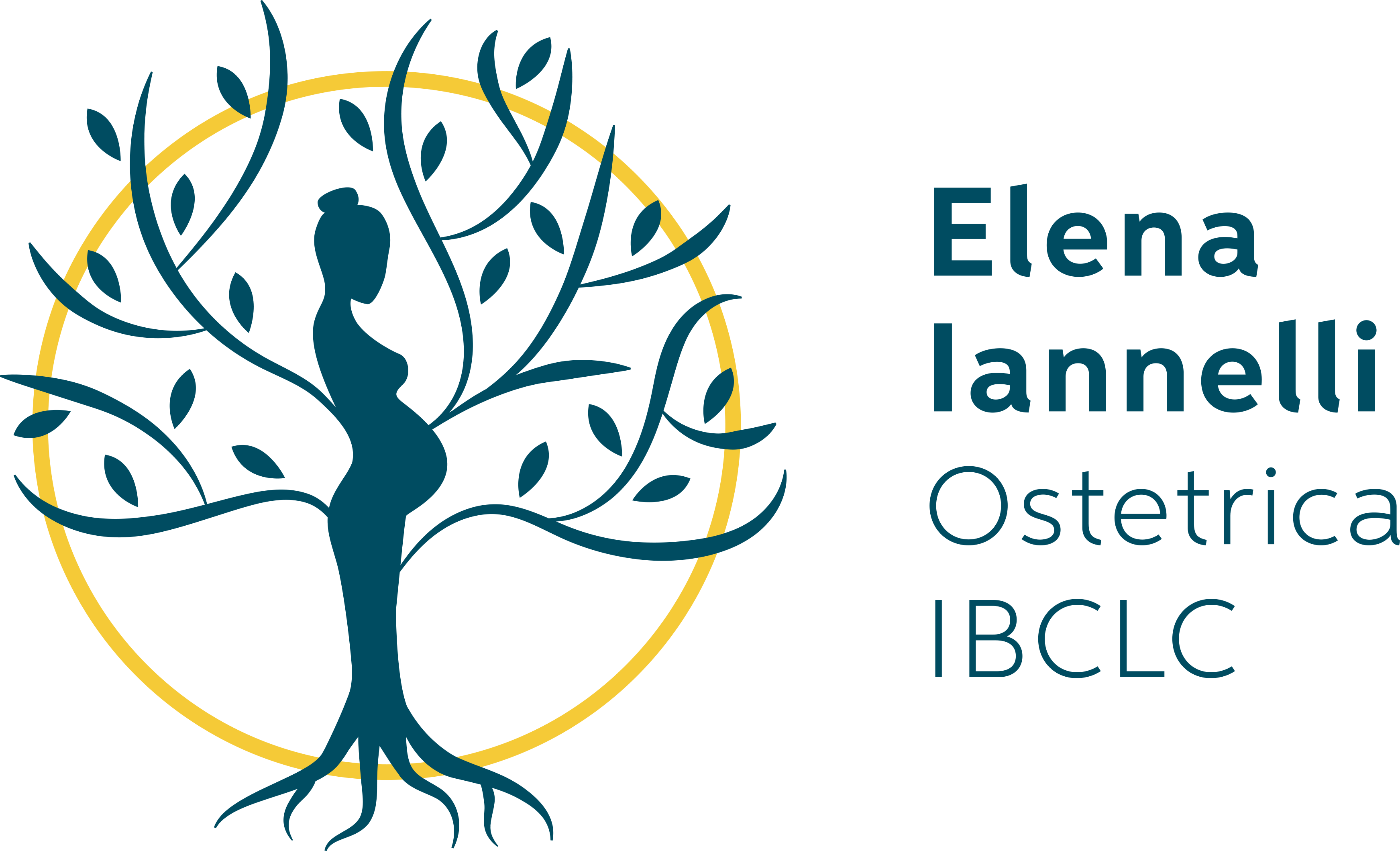Baby Blues and postpartum feelings

Why is it important to talk about postpartum emotions, baby blues and postpartum depression?
The birth of a child is a joyful and wonderful event that brings with it a roller coaster of emotions. However, for many women this period can also be characterised by sadness, melancholy and tiredness.
Talking about postpartum emotions, baby blues and postpartum depression is important for several reasons:
- It helps to normalise these experiences: many women feel guilty or inadequate when they experience low moods after giving birth. Knowing that these are common feelings can help new mothers to feel less alone and to ask for help if they need it.
- It helps to recognise the symptoms of baby blues and postpartum depression: not all women who feel sad after giving birth have postpartum depression. However, it is important to know the symptoms of both conditions in order to be able to seek help promptly if necessary.
- Reduces stigma: post-partum depression is still often stigmatised, which can prevent women from seeking help for fear of being judged. Talking openly about this illness can help reduce stigma and encourage women to seek the support they need.
- Encourages help-seeking: new mothers suffering from post-partum depression do not ask for help out of fear, shame or lack of knowledge. Becoming aware of this illness can encourage women to seek help and receive treatment in line with their needs.
- Promotes the well-being of mothers and babies: postpartum depression can have a negative impact on the mother’s mental and physical health and her relationship with the baby. Treating it is important for the well-being of both mother and baby.
Talking about emotions, baby blues and postpartum depression is important to create a world in which all mothers feel supported, understood and able to ask for help when they need it.
What is the baby blues?
The baby blues is a drop in mood that affects about 70-80% of new mothers in the first 10-15 days after giving birth. It manifests itself with:
- Sadness
- Unmotivated crying
- Irritability
- Anxiety
- Difficulty concentrating
- Insomnia
- Altered appetite
These symptoms are due to a number of factors, including:
- Hormonal changes: estrogen and progesterone levels drop after childbirth, causing emotional imbalances.
- Physical tiredness: caring for a newborn requires considerable energy, depriving the mother of the necessary rest.
- Lack of sleep: night wakings for breastfeeding or nappy changing can disturb sleep.
- Worries about the baby: the new mother is struggling with a new role and may feel insecure and inadequate.
- Lack of emotional support: not feeling supported by loved ones may exacerbate the feeling of discomfort.
How to deal with the baby blues
Baby blues generally resolve within two weeks without the need for any intervention. However, some strategies can help you cope with this sensitive period:
- Talk to someone: sharing with your partner, a family member or friend can be a great help.
- Rest when possible: even short naps during the day can be beneficial.
- Delegate tasks: ask for help with household chores or childcare, this will give you more time for yourself.
- Eat healthily: a balanced diet helps improve mood and energy.
- Go out for a walk: being outdoors and doing some physical exercise can be good for both body and mind.
- Practice relaxation techniques: yoga, meditation or deep breathing can help you reduce stress and anxiety.
- Accept your emotions: it is important not to feel guilty about feeling sadness or melancholy.
- Seek professional help: if symptoms persist or interfere with your daily life, seek professional help from a specialist in perinatal psychology.
Remember: baby blues is a transitory and normal condition. With a little support and self-care, you will get through this period and enjoy the joy of being a mother.
In addition to the above:
- It is important to remember that every woman experiences postpartum differently. There is no right or wrong way to feel.
- Don’t isolate yourself: talk to other mums, both online and in person, to share experiences and support each other (find out more about ‘mum to mum’ meetings)
- Be kind to yourself: becoming a mum is a big change that takes time to adjust to. Don’t be afraid to ask for help when you need it.
With the right support and strategies, you will cope with the baby blues and enjoy the wonderful experience of motherhood.
Beware of postpartum depression
If the baby blues persists beyond two weeks or intensifies, it could be postpartum depression (‘PPD’). PPD is a medical condition that requires medical and psychological intervention; it is important to discuss it with your midwife or doctor.
10-15% of new mothers suffer from postnatal depression, which can start at any time in the first year after delivery and can develop suddenly or gradually.
Symptoms such as tiredness, irritability or poor appetite are normal if you have just had a baby, but are usually mild and do not prevent you from leading a normal life. When you suffer from postnatal depression, you may feel increasingly depressed and low. Taking care of yourself or your baby can become too demanding. Your partner, friends or family can play an important role in noticing the symptoms.
Symptoms of postnatal depression:
- More intense and persistent symptoms of the baby blues
- Loss of interest in the world around you and in activities that used to give you pleasure
- Feeling of emptiness and apathy
- Difficulty concentrating
- Not being able to enjoy anything
- Feelings of hopelessness
- Negative and pessimistic thoughts
- Ideas of suicide or hurting the child
- Loss of energy and chronic tiredness
- Panic attacks
If you suspect that you are suffering from PPD, it is important to consult a doctor or psychologist as soon as possible. PPD is a treatable condition and with the right treatment, most women recover completely and can enjoy motherhood.
Don’t be afraid to talk to health professionals about it because we are used to helping you.
Here are some tips for getting help:
- Talk to your midwife, doctor or paediatrician.
- Contact the family advice centre in your area.
- Call a helpline for postnatal depression.
- Contact a support association for new mothers.
Remember: you are not alone. Postnatal depression is a common and treatable illness. With the right help, you can overcome it and experience peaceful and happy motherhood.
In addition to the above:
- It is important that partners, family members and friends are informed about the symptoms of PPD and know how to support the new mother.
- PPD is not a sign of weakness or inadequacy. It is an illness that must be treated.
- The earlier the diagnosis and treatment, the better the results.
- With the right treatment, most women with PPD recover completely and can have a healthy and happy life.
I hope this article has been helpful to you. If you have any questions or concerns, please do not hesitate to contact me.
Also read some tips on what to expect in postpartum: https://www.elenaiannelli.it/en/what-you-dont-know-about-postpartum-returning-home-and-first-motherhood-concerns/

